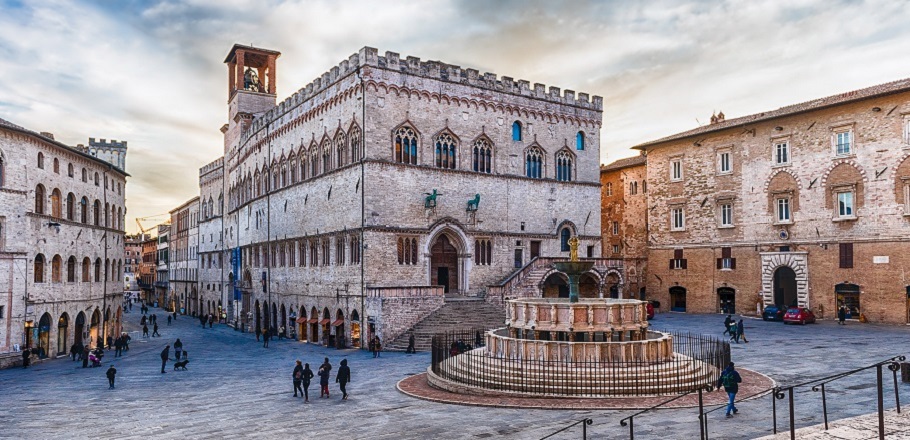Perugia 8-9 October 2024
'Being good with money' is something we can learn: just like we learn how to drive, we can also learn to spend within limits, save when possible, invest while containing risks, choose the most convenient loan, and assert our rights at a bank. And just as you don't need to be a racing car driver to drive well, you don't need to be a financial expert to manage money well: basic knowledge is enough, which is what financial culture is. Spreading it to everyone is the task of those who provide financial education, like Banca d'Italia. How this knowledge is useful and how to spread it was discussed during the Perugia stop of 'On the Road', at the main event entitled 'Financial Literacy: Why It Matters to Know More', held on 8 October at the Palazzo dei Priori.
'Everyone needs financial education', said Maria Iride Vangelisti, an expert from Banca d'Italia's Financial Education Directorate. The average level of financial knowledge is still low in Italy, lower than in many other countries. However, she believes that introducing this teaching into schools as part of civic education 'will be a driving force for change'. Every step forward in this area is good news for society as a whole: knowing how to manage money well 'also matters for the country, because there are obviously fewer situations of difficulty where intervention may be necessary'.
Spreading financial literacy is also essential to protect bank customers from irregular and dishonest behaviour, as noted by Miriam Sartini, Director of the Perugia branch of Banca d'Italia, who added that 'the Bank is fully committed to ensuring that every citizen is protected and able to make increasingly informed financial choices'. Banca d'Italia has been organizing financial education projects for schools and specific adult groups, such as women, small entrepreneurs, and people disadvantaged by poverty or marginalization, in collaboration with public and private partners.
Regarding women, 32 per cent have low financial knowledge in Italy, compared with 20 per cent of men, explained Manuela Gallo, professor of Financial Markets and Institutions at the University of Perugia. The gender gap in financial literacy 'affects all countries, but especially ours'. According to Gallo, introducing financial education as early as elementary school is essential, but initiatives for older women, immigrant women, and other individuals considered vulnerable in society are also important.
The University for Foreigners of/in Perugia also highlights the need for financial education, particularly for its young and adult students. 'The most common perception is that it is difficult in Italy' said Rector Valerio De Cesaris. 'Bureaucratic requirements are necessary, and there are reasons for the difficulties in accessing credit, but despite everything, for those coming from abroad, the perception is one of difficulty. The issue is perhaps an issue of education, or knowing about things'. It's about strengthening people's financial culture 'to help them navigate their choices'.
What happens where financial knowledge is less widespread? 'What awaits us are very difficult conditions such as poverty, violence, usury and family tragedies', observed Alfonso Dragone, Head of Projects at the Caritas Diocese of Perugia-Città della Pieve. Financial literacy 'ensures that all of this can be avoided' and added that 'initiatives that respond to immediate needs are welcome, but in parallel, it is important to leverage prevention programmes, starting in schools'.
Students were also discussed at the University of Perugia in another event on 8 October, 'All for one, economics for all! Financial education in primary schools', dedicated to Banca d'Italia's project for schools, aimed at children aged 6 to 10 years.
Download the programme (only in Italian)The topics covered in this event
-
The Italians' Financial Culture: Make the Right Choice
Basic financial knowledge helps us to manage money more wisely. Banca d'Italia spreads this kind of knowledge through its financial education programmes.





